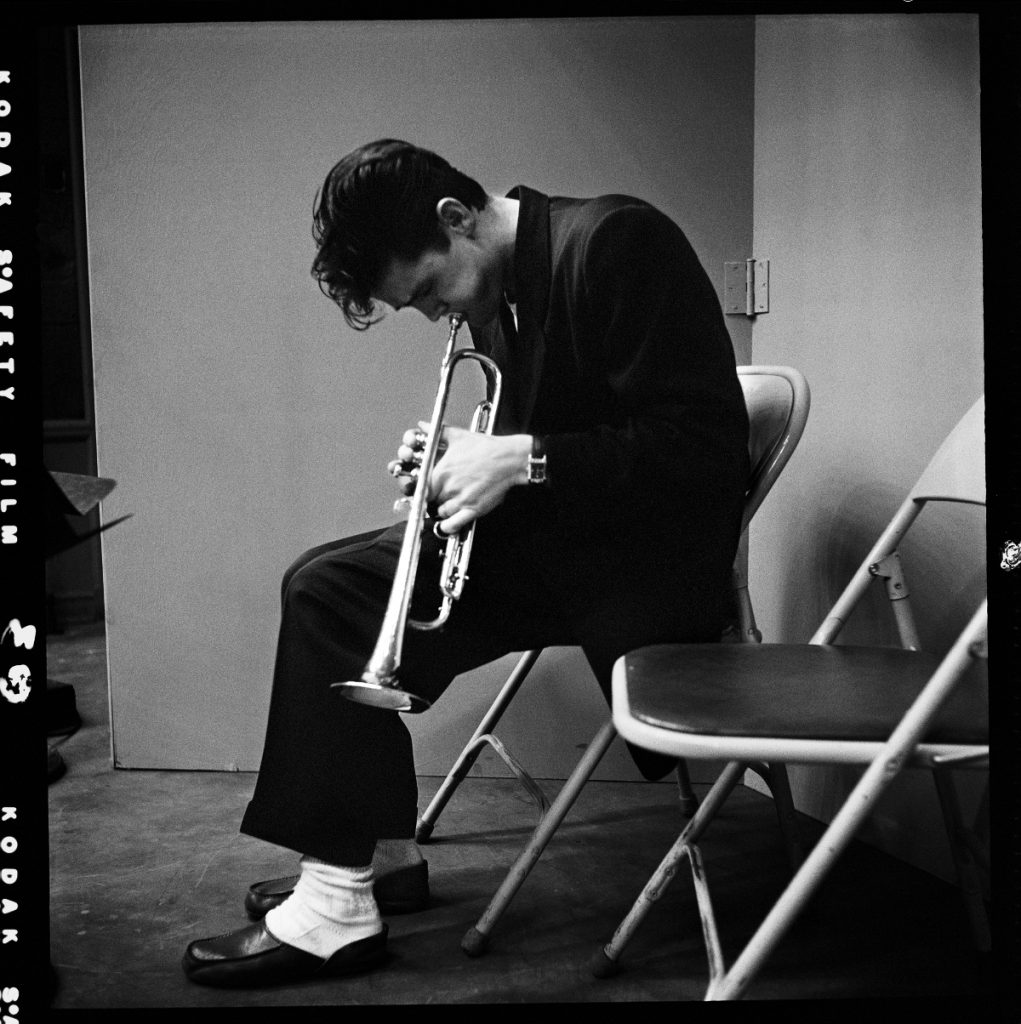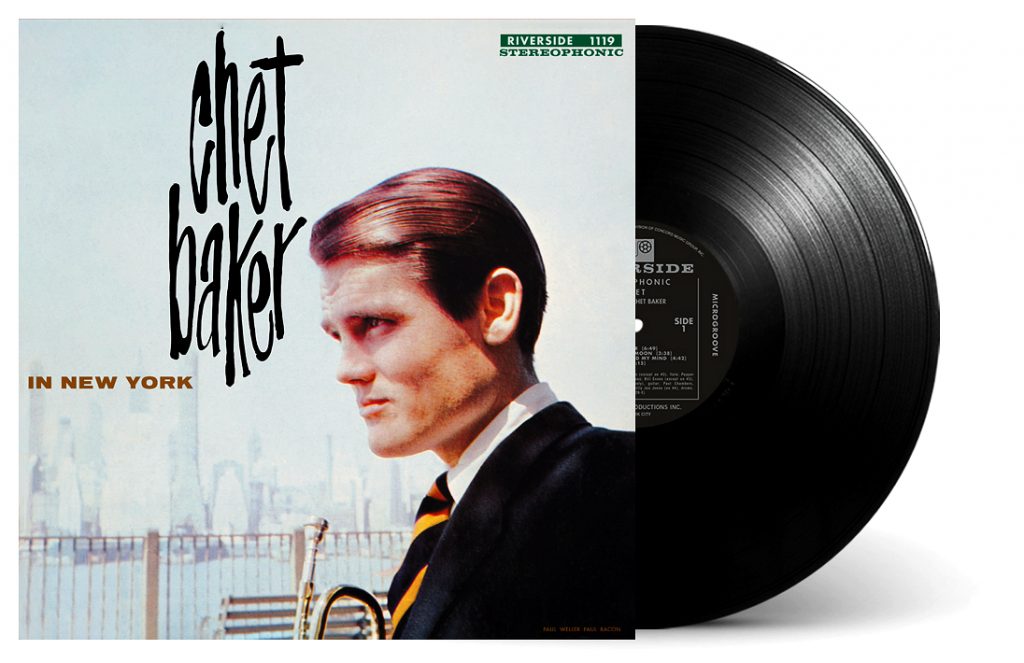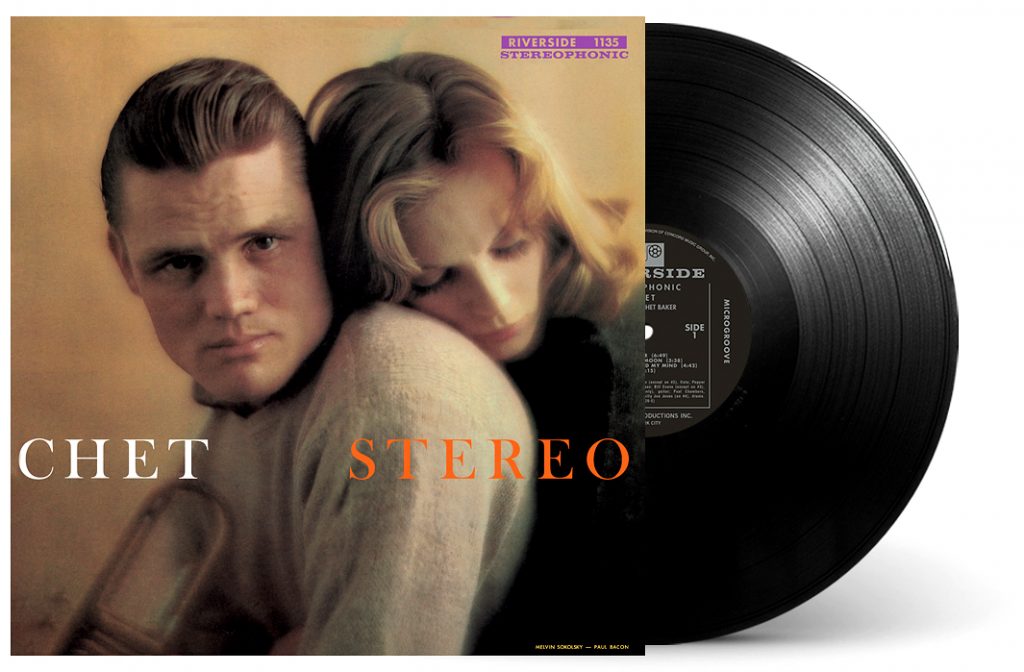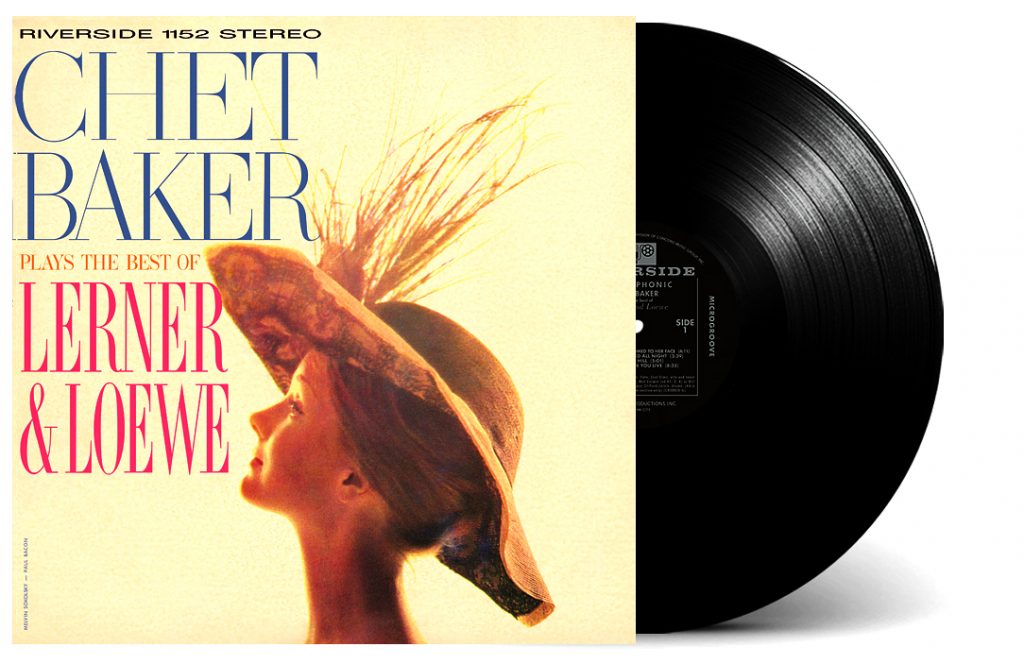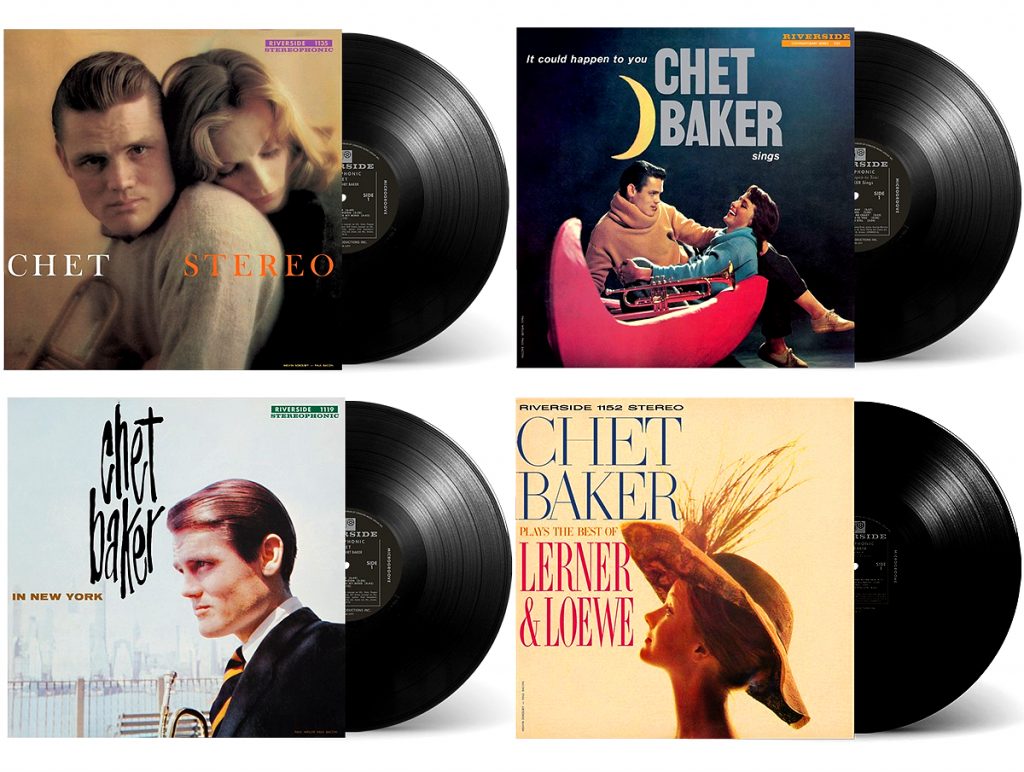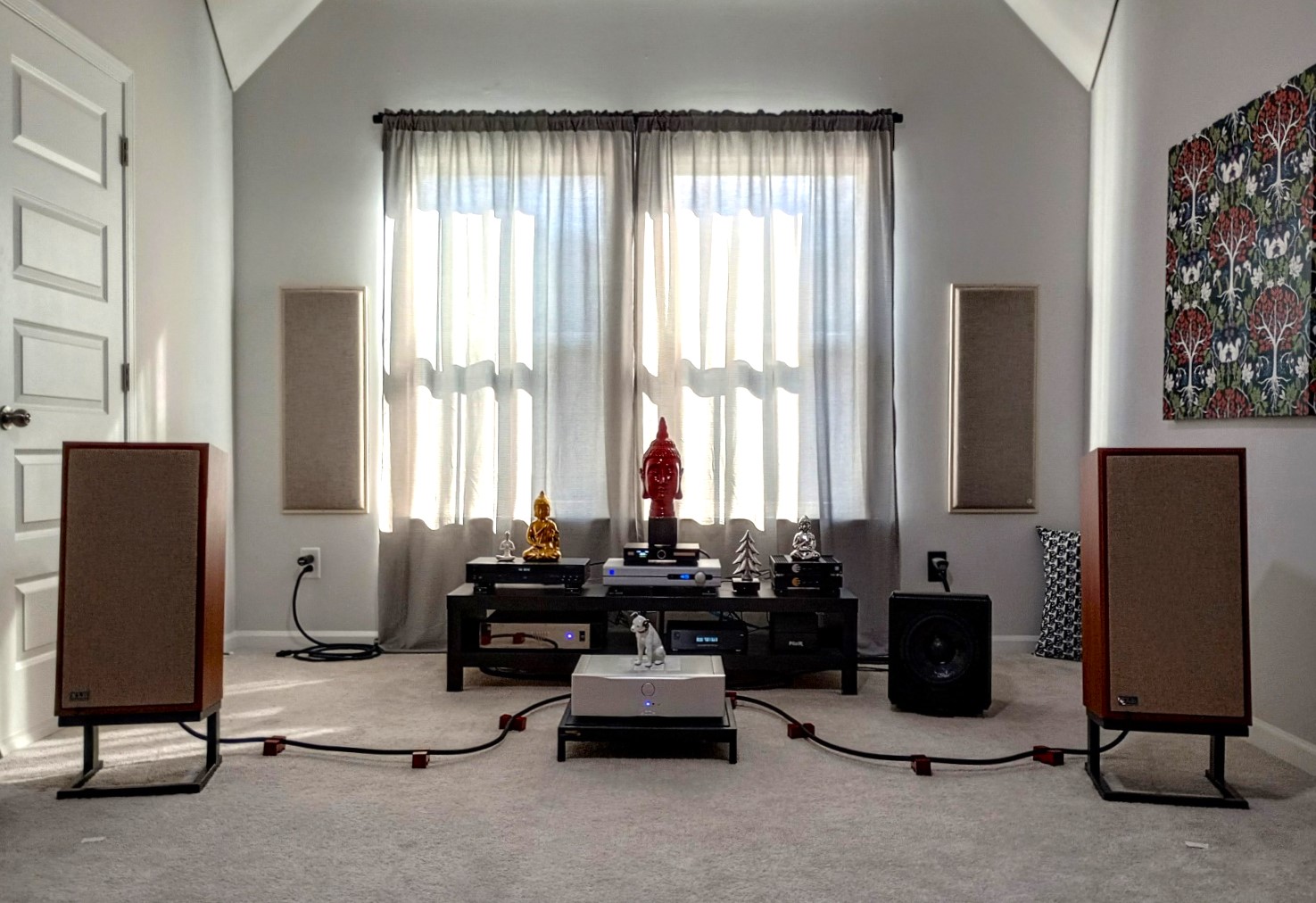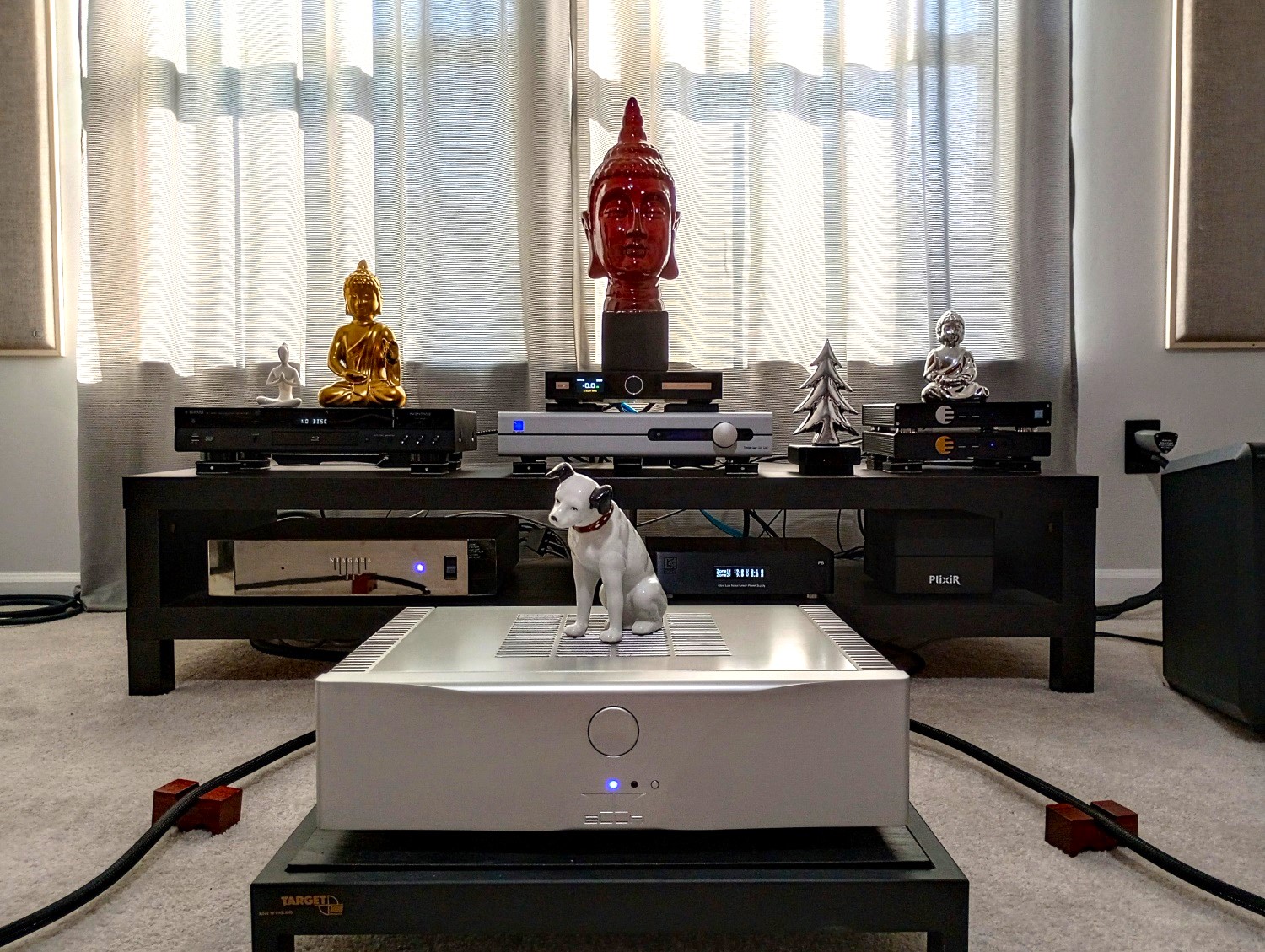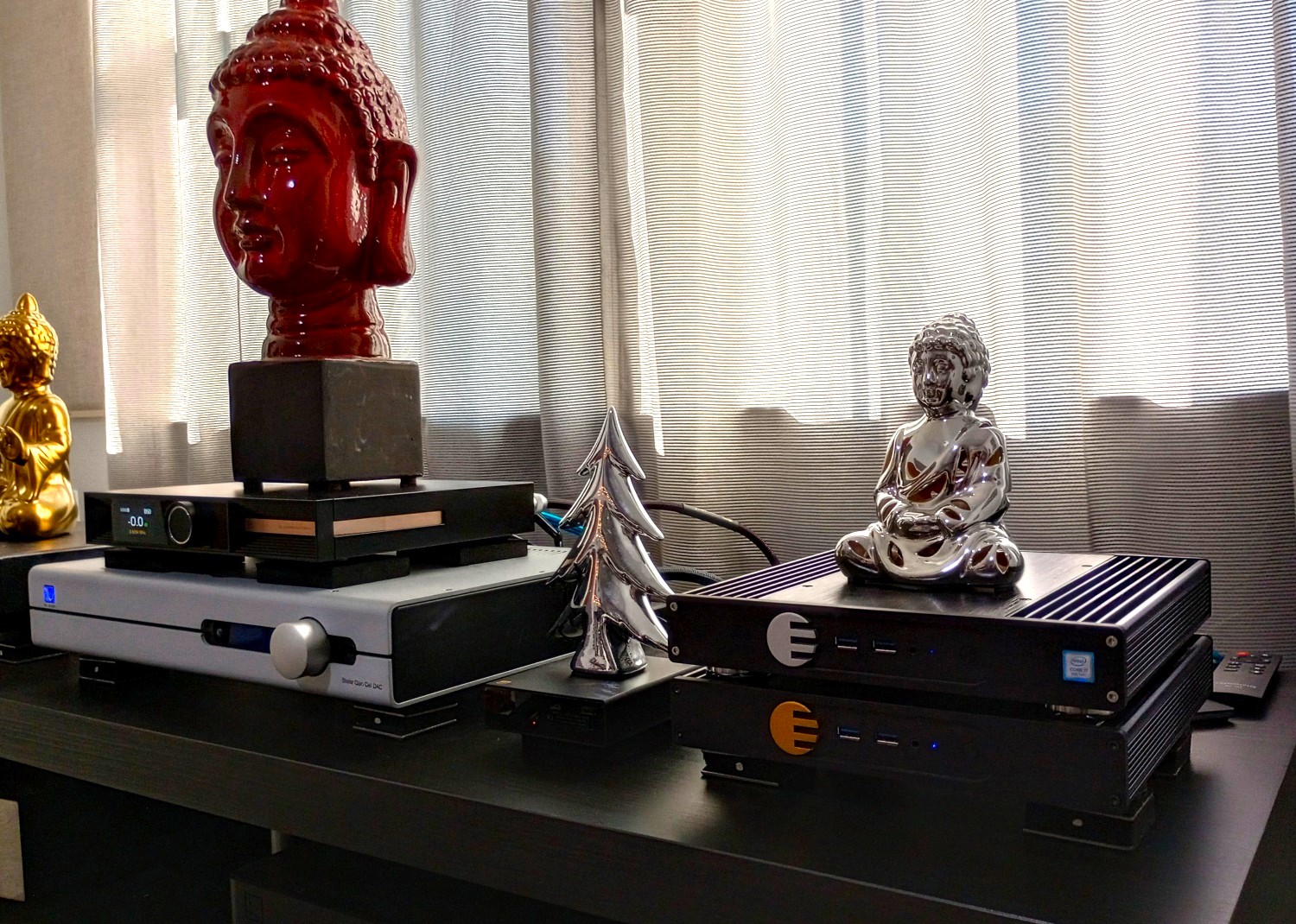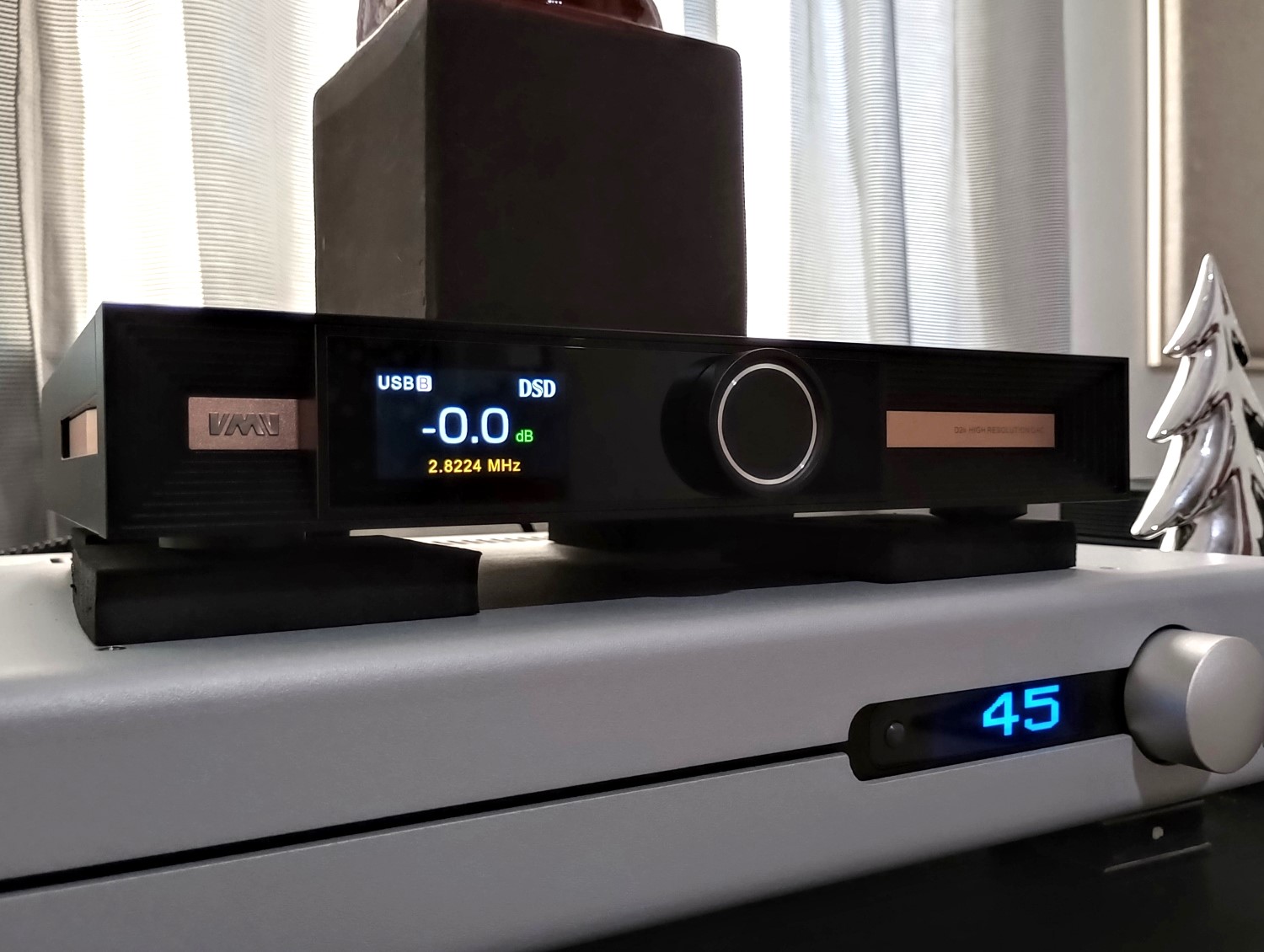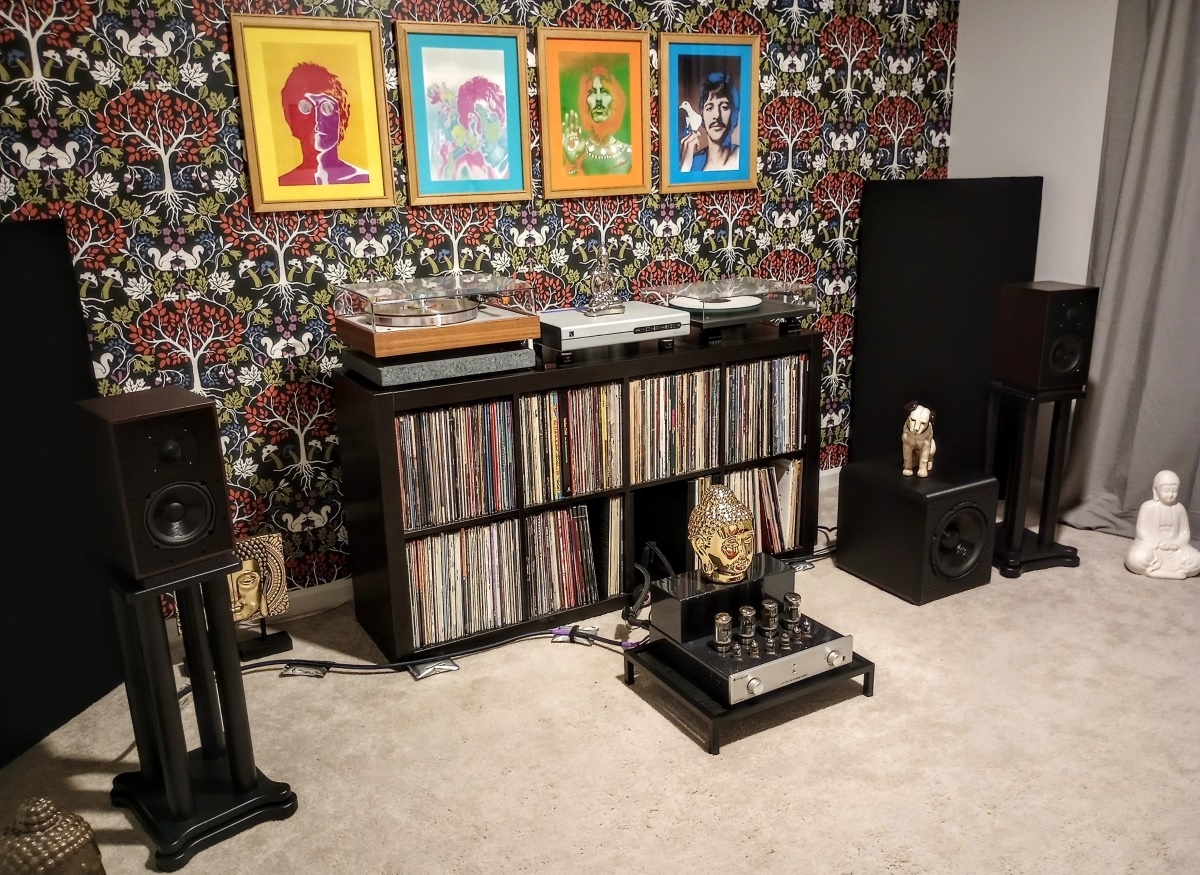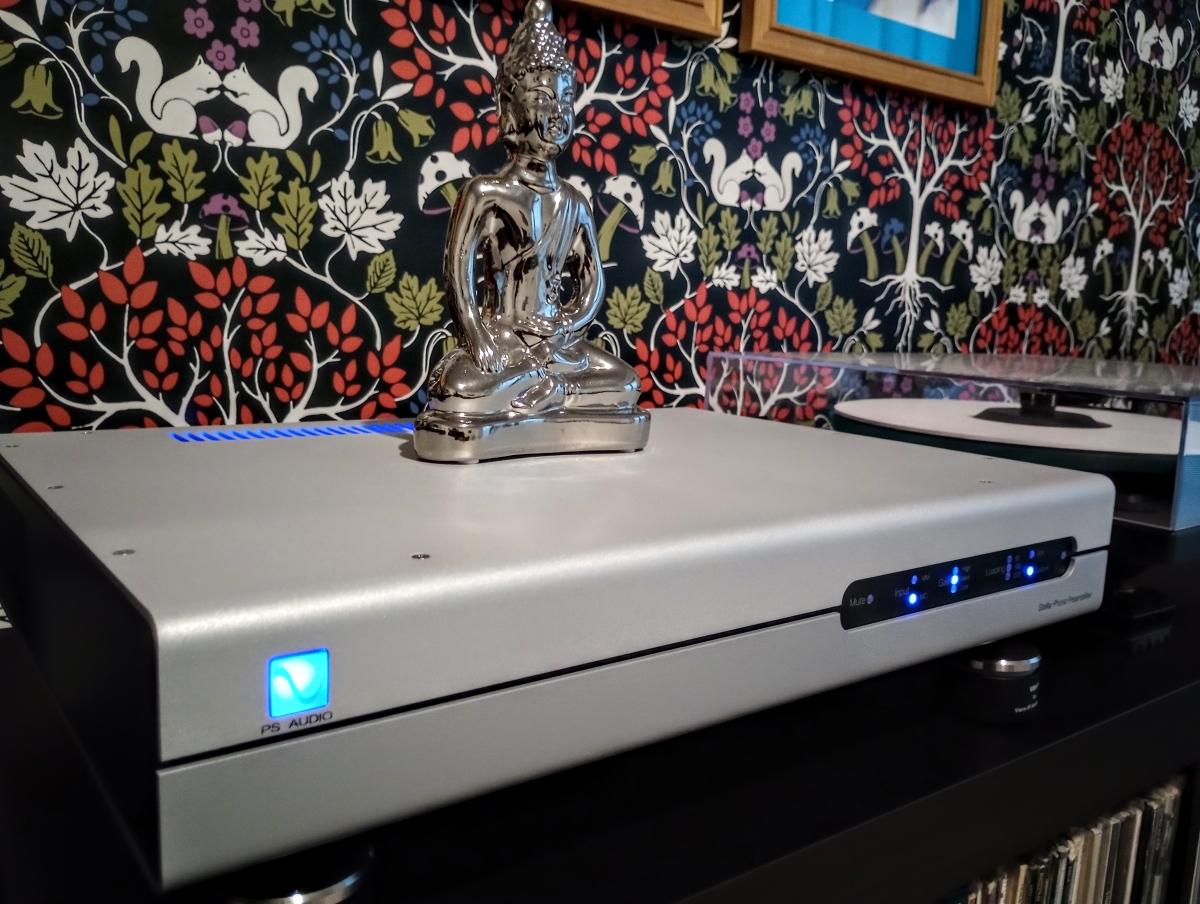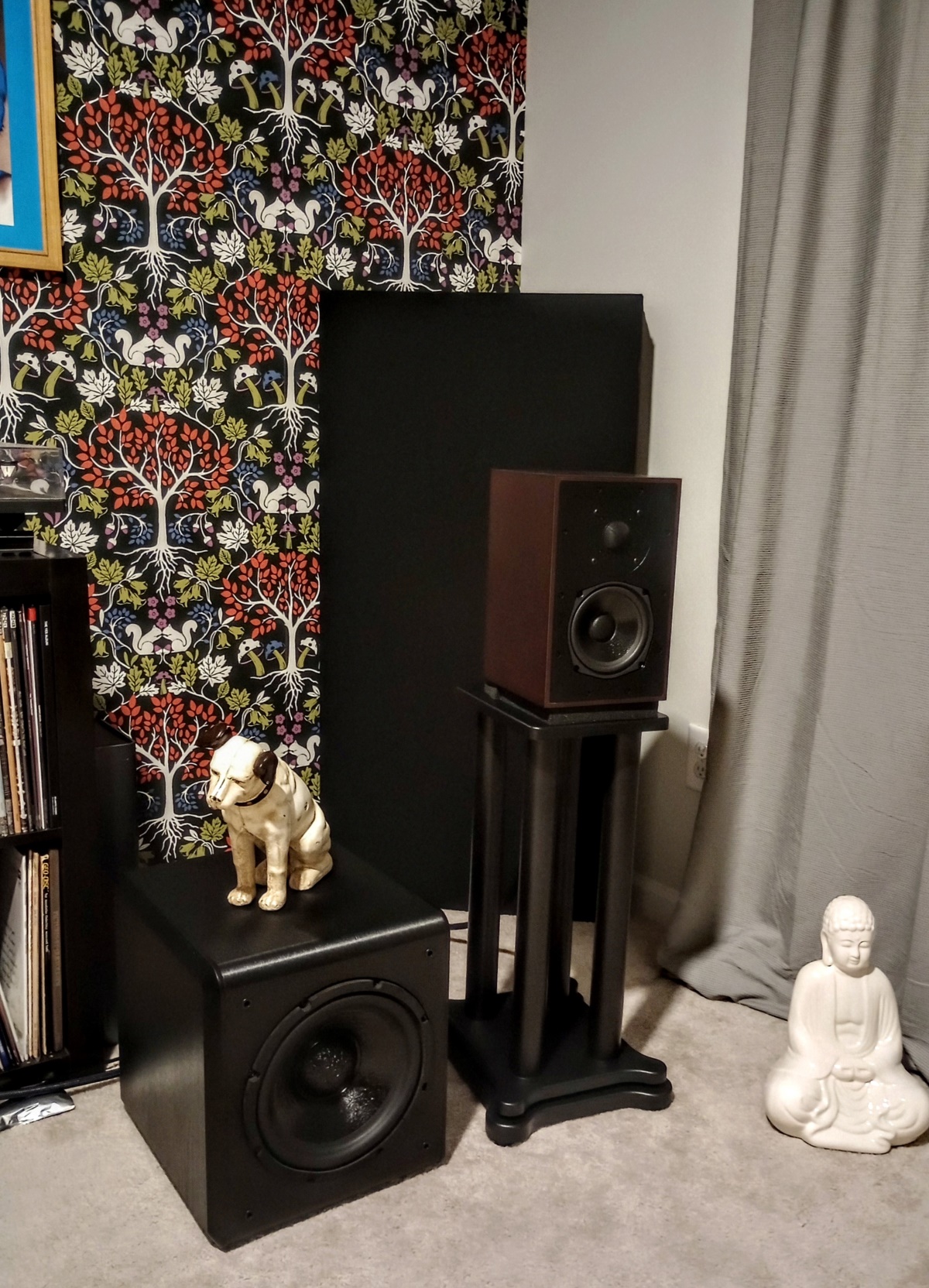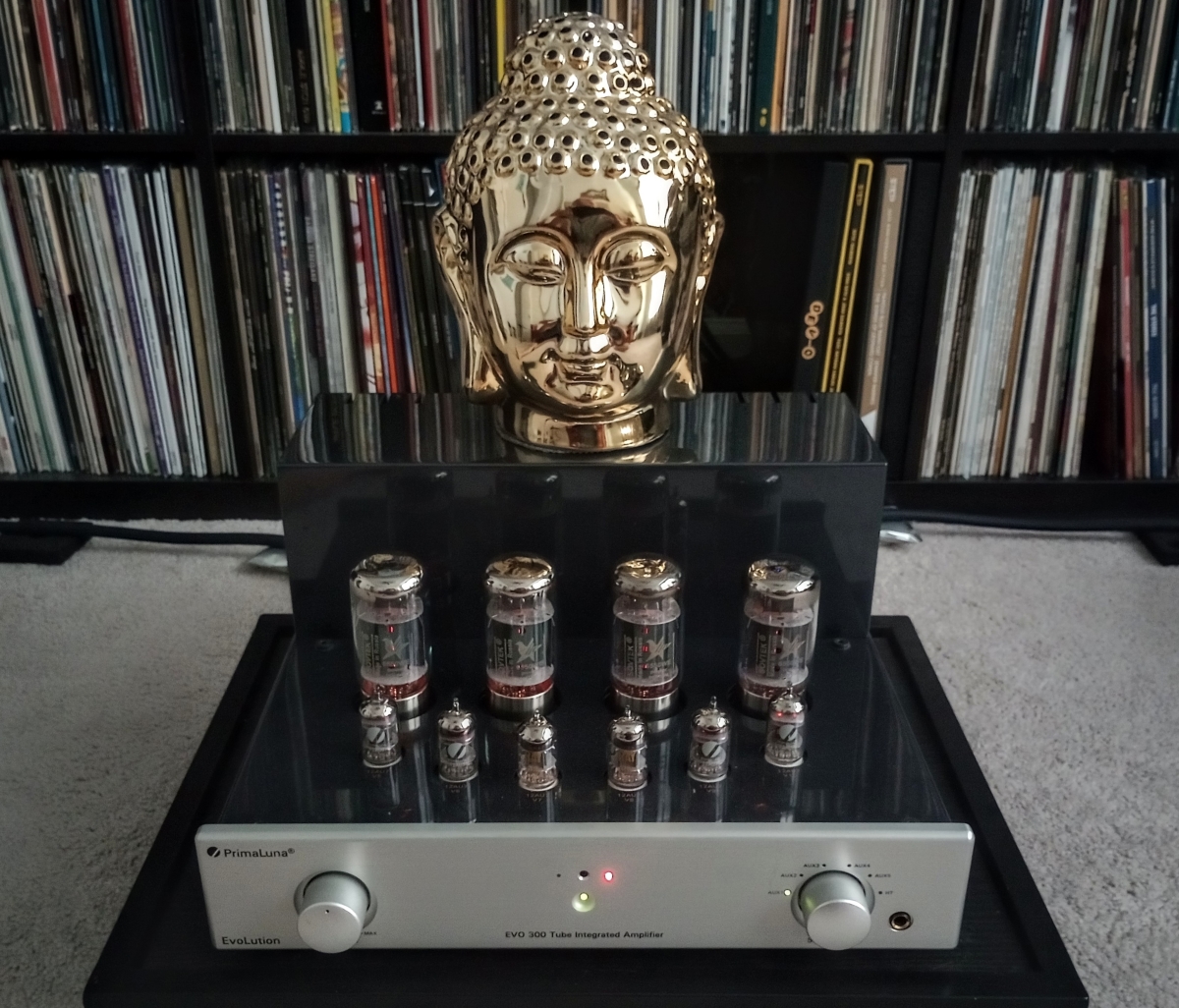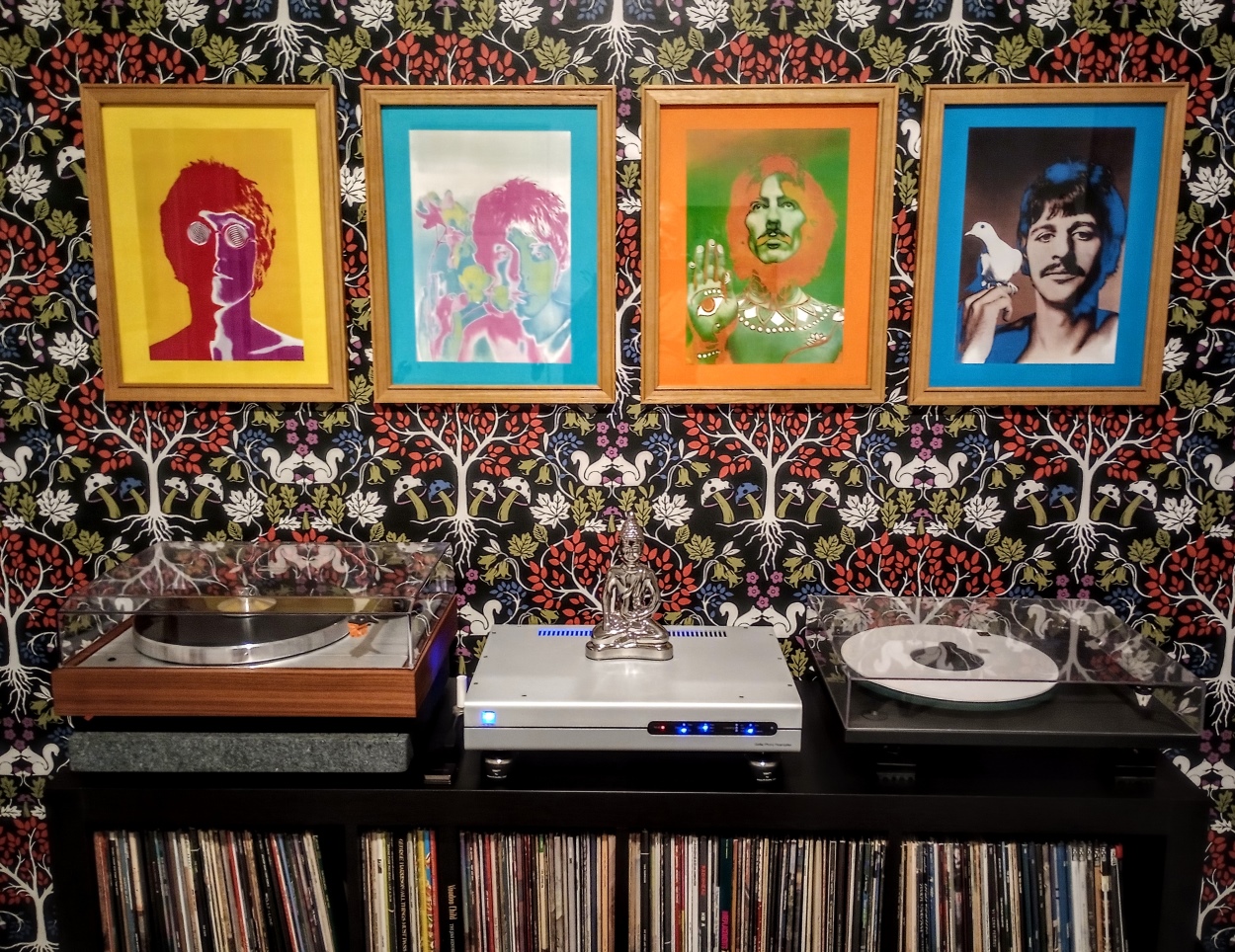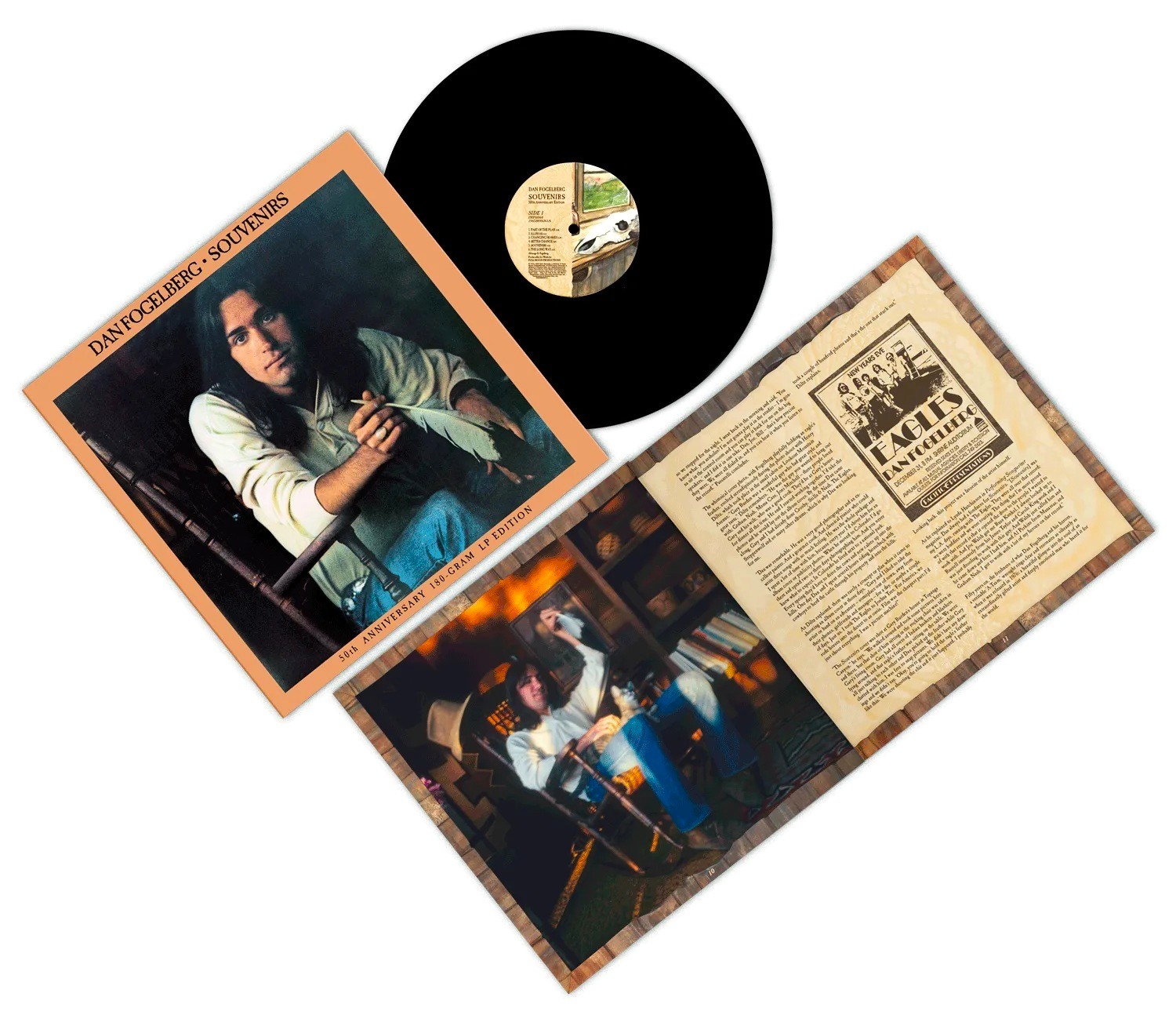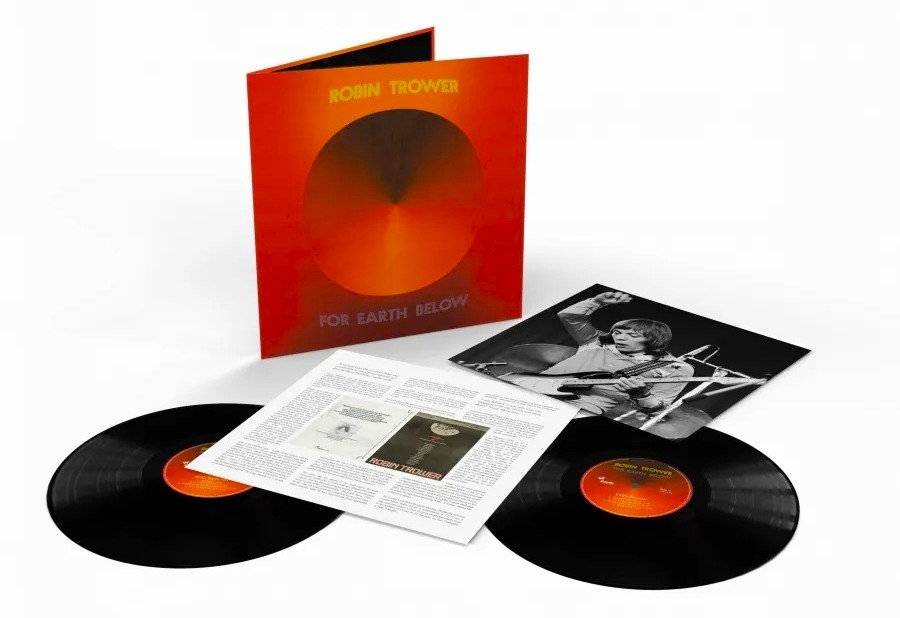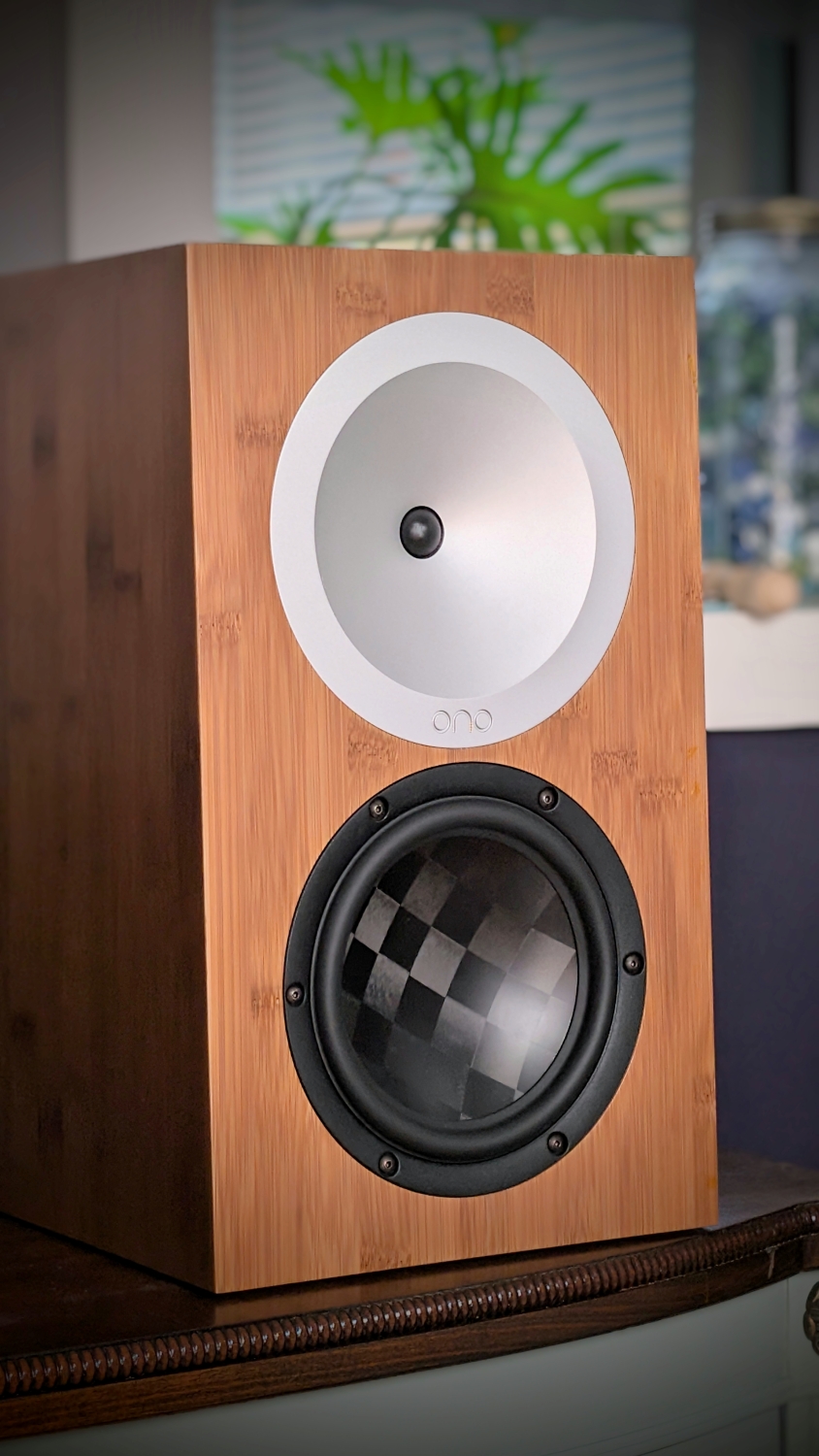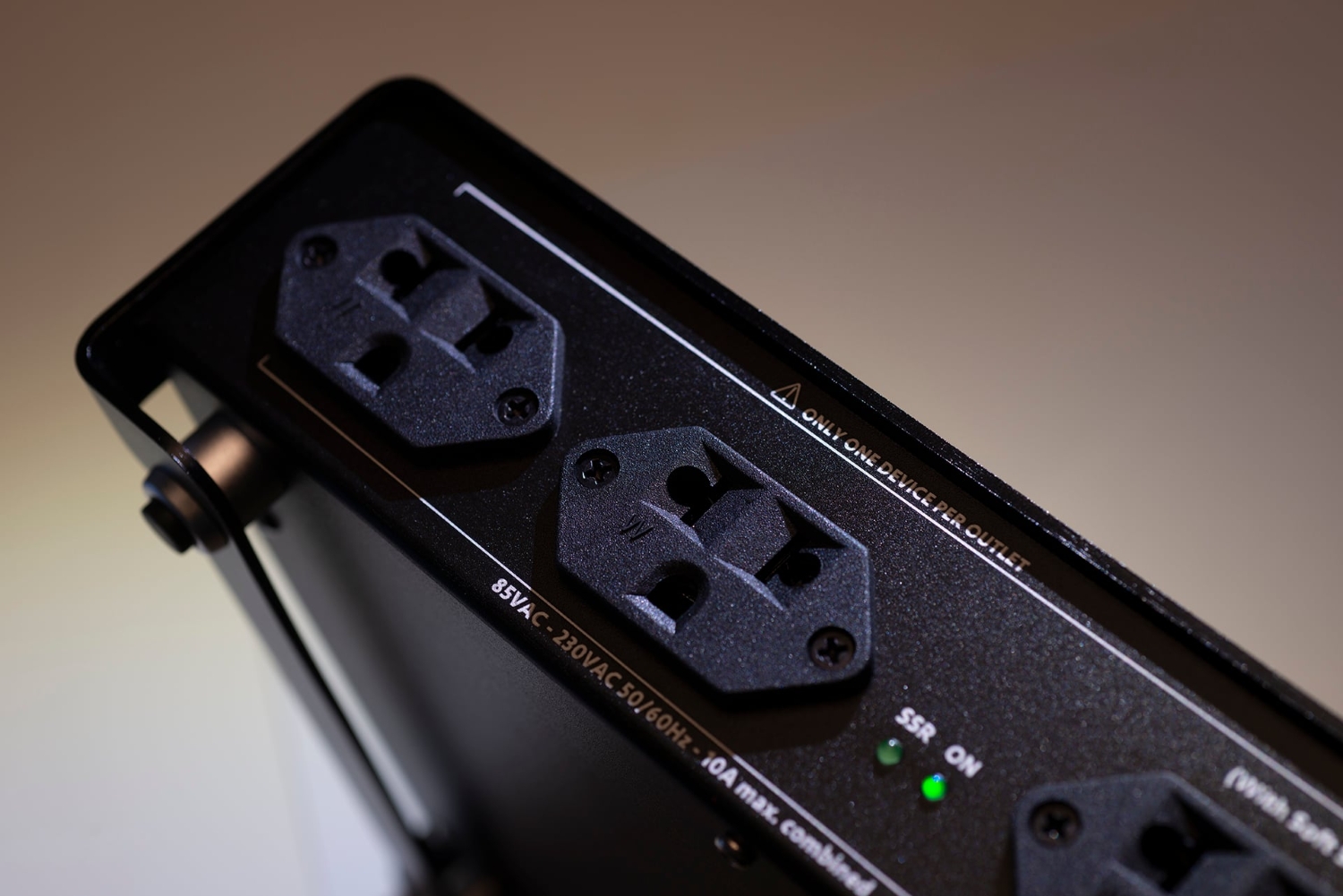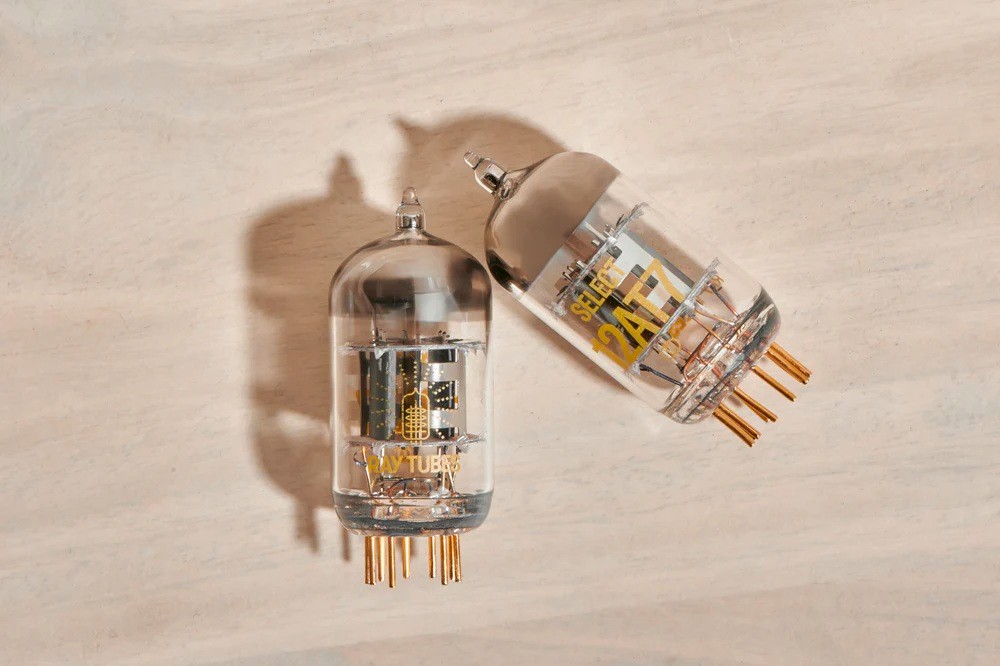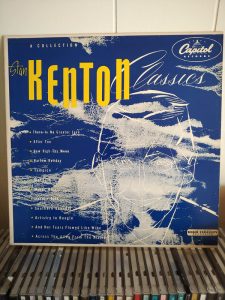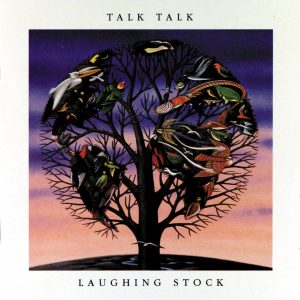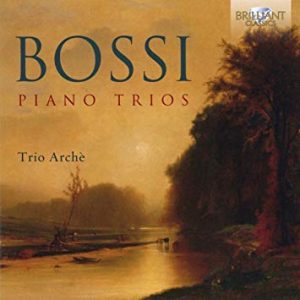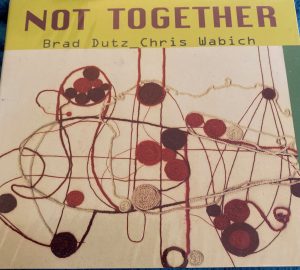At the peak of his career, Chesney "Chet" Baker represented the epitome of jazz cool, and along with the likes of Dave Brubeck, Paul Desmond, Gerry Mulligan, and Stan Getz was one of the principal figures of the "West Coast Jazz" movement centered between San Francisco and Los Angeles. Baker relished living the fast life, and his well-documented heroin addiction and increasingly erratic behavior helped define his career—especially in his later years. He was the embodiment of the classic jazz story of romanticism intertwined with tragedy that spanned most of his forty year career as a performer. The charisma that he exuded in his earliest performances (he was quickly pronounced the "prince of cool") still grabs listeners to this day, only building his mystique in the decades since his untimely death in 1988.
Chet Baker was born in Oklahoma to musical parents; his father was a professional guitarist, and his mother was a pianist, and they greatly encouraged his musical pursuits. At the peak of the great depression, the family relocated to California; Chet's father eventually had to stop performing, and took a more conventional job, but never discouraged his son from following his muse. Baker sang in the local church choir, and his father bought him a trombone, which he later traded for a more manageable trumpet. By all accounts, Baker had a natural talent for the instrument, and was a preternaturally gifted musician—which is remarkable considering he was mostly self-taught, with little or no formal instruction. In the early 50s, Baker was chosen for a series of concerts in a west coast appearance by Charlie Parker, then gigged regularly with Stan Getz and later with Gerry Mulligan. And eventually was signed to the Pacific Jazz label, where he made a number of well-received recordings that placed him clearly in the spotlight.
Someone brought the little-known tune "My Funny Valentine" to his attention in 1952, and it became a regular part of his live shows (and his identity), and became his signature tune from that point on. He sang it for the first time on 1954's Chet Baker Sings; his cool and offbeat vocal rendering of the Rodgers and Hart song became a huge hit for him. He won reader polls for best jazz vocalist in 1954, and between 53 and 56, Baker regularly won polls in Metronome and Down Beat, beating both Miles Davis and Clifford Brown for best trumpet player. In 1958, he signed a four album deal with Riverside Records, and went to New York City over the next year to record some of his most important albums with some of the biggest names in jazz and hard bop. He was unquestionably at the pinnacle of his career.
It Could Happen To You: Chet Baker Sings
Riverside Records wanted to cash in on Chet Baker's popularity as a vocalist, hence the choice of It Could Happen To You: Chet Baker Sings as the first project for his new label. Not everyone was so enthusiastic; Riverside label co-founder Orrin Keepnews voiced his disapproval of Baker's signing (Baker was already getting some bad press for his drug involvement), and he refused to take part in the recording sessions. Which marked the only Riverside recording session Keepnews didn't preside over as any album's producer. Studio time was booked for August, 1958; Riverside recruited pianist Kenny Drew, along with George Morrow and Sam Jones who alternated on bass, and Philly Joe Jones and Dannie Richmond took turns behind the drum kit.
Chet Baker's almost falsetto singing style is singular among jazz vocalists, and with It Could Happen To You, he brought his artistry to new heights. All the songs are standards or taken from Tin Pan Alley, but Baker makes them his own with his inimitable, hipster approach to the songs; on several, he doesn't even play trumpet, but his mellifluous scatting at times almost resembles the tone of his instrument. Baker's vocal stylings and the somewhat off-kilter and seriously slowed-down arrangements render songs like "I'm Old Fashioned," "It Could Happen To You," "Everything Happens To Me," and "How Long Has This Been Going On" almost melodically unrecognizable, but nonetheless enjoyable.
And Baker mines from his previous successes by featuring no fewer than three tunes from Rodgers and Hart, two of which—"Do It The Hard Way" and "My Heart Stood Still"—I'd never previously heard. The accompaniment—though relatively minimal, especially for a vocal album in the Fifties, which generally always seemed to require a full orchestra—is stellar, perfectly complementing Baker's lyrical vocal tone. While for some, Chet Baker's unique voice may be something of an acquired taste, It Could Happen To You is undeniably the crème de la crème of his recorded vocal legacy.
Chet Baker In New York
Less than a month after the conclusion of the sessions for It Could Happen To You, Baker was back in the studio for his next Riverside album, Chet Baker In New York. This time, Orrin Keepnews was on board, and he helped engage another stellar group of sidemen for the project. Including the criminally underrated Johnny Griffin on tenor sax, with Al Haig on piano, Paul Chambers on bass, and with Philly Joe Jones making a second appearance with Baker on drums. Whereas the previous vocal album prominently highlighted Baker's "let's slow this down to a crawl" West Coast aesthetic, Chet Baker In New York really cooks at times, presenting Chet Baker probably for the first time with more of a hard-bop sensibility.
The album steps up the tempo with the Kenny Dorham / Benny Golson number "Fair Weather." The first verse on trumpet is followed by a pretty nifty Paul Chambers bass solo, which transitions into a superbly lyrical tenor offering from Johnny Griffin; Al Haig then steps in on piano, just before the quartet resumes full-tilt. Chet Baker was definitely willing to allow his bandmates to solo at will—no ego problems here! The mood becomes more lyrical with the perennial favorite, "Polka Dots and Moonbeams"—which also happens to be one of the working titles this album has been regularly re-released under at several points over the last six decades. Chet Baker's expressive phrasing is at a melodic high point on the classic Johnny Burke / Jimmy Van Heusen tune. "Hotel 49," which clocks in at almost ten minutes, is an evocative ramble that offers plenty of opportunities throughout for everyone to take a solo turn; this time even Philly Joe gets in on the action! This is another outstanding tune (by Owen Marshall) that, surprisingly, I'd never heard before, but it's definitely the album's centerpiece.
A superb reading of Miles Davis' "Solar" is followed by a contemplative group effort on another Benny Golson tune, "Blue Thoughts." Baker's tender trumpet solo is followed by equally expressive turns from Haig, Griffin, and Chambers. The album closes with "When Lights Are Low," a Benny Carter tune that Miles had also used to close his quintet album Cookin' With Miles a year earlier. Chet Baker's fluidity and roundness of tone offers a more lyrical approach that counters the brashness of Davis and Coltrane in their more straight-ahead rendering.
Chet
The sessions for Chet—which has also occasionally been repackaged as Chet: The Lyrical Trumpet of Chet Baker—began in December 1958 and spilled over into January 1959. Of all the albums Chet Baker recorded for Riverside, this one is probably most representative of his West Coast cool style, and also features the most star-studded cast of supporting players. Three members of Miles Davis' then current quintet appeared on the album, including pianist Bill Evans and bassist Paul Chambers; drummer Philly Joe Jones again shows up on four tracks. Connie Kay of the Modern Jazz Quartet handles the drum kit on the remainder of the tracks. And on seven of the album's ten tracks, Pepper Adams plays baritone sax while Herbie Mann adds flute. Rounding things out, Kenny Burrell adds his guitar stylings to the two tracks that Adams and Mann laid out on. It was the kind of first-line, dream-team cast of players that Chet Baker would never again have the pleasure of playing with beyond the Riverside sessions.
On the opening track, "Alone Together," Chet Baker plays the kind of long, fluid lines that characterized the bulk of his West Coast albums for the Pacific Jazz label. Everyone follows his lead, playing as low and slow as humanly possible, stretching the song out to nearly seven minutes. I've heard countless versions of this classic tune over the years, and Baker's version on Chet definitely proceeds at the most leisurely pace—setting the tone for the entire album. Classic tunes abound here; Baker again mines the riches of Rodgers and Hart with a very tender reading of "It Never Entered My Mind," where he solos beautifully throughout. Henry Nemo's "Tis Autumn" is one of the album's highlights, where Baker and Pepper Adams trade lines repeatedly, then each offers liltingly beautiful solos. Baker offers another poignant turn on the Maxwell Anderson / Kurt Weill classic "September Song," which opens with a lovely Kenny Burrel solo, and his guitar adorns the tune throughout Baker's alluring solos. A very prophetic choice indeed; although Baker was only thirty at the time of the recording, he was already approaching the twilight of his mainstream career.
On Chet, Baker was at his most poignant and lyrical, hearkening back to the glory days from only a few years earlier with Pacific Jazz. Already deeply entrenched in the harrowing world of heroin addiction, Baker would never again play with the kind of languid fluidity that's constantly on display here.
Chet Baker Plays The Best of Lerner and Loewe
The final album of the Riverside sessions, Chet Baker Plays The Best of Lerner and Loewe, easily represents the clear low point and most mixed bag of the albums recorded in the year Chet Baker spent in New York. The sessions were intended to continue from the work going on while recording Chet, but Baker found himself on the wrong side of the law, and spent several months in New York's Rikers Island prison following another drug charge. From the previous sessions, Herbie Mann and Pepper Adams appear on most of the tracks, and Bill Evans also provides piano for four. When the Lerner and Loewe sessions resumed, Zoot Sims was recruited to add sax, and Bob Corwin added piano to the remaining tracks. Earl May played bass, and Clifford Jarvis sat in at the drum kit.
For some reason, there's a fairly heavy-handed use of reverb on many of the tracks; sure, it's atmospheric, but almost subverts some of the best tracks on the album. Like "On The Street Where You Live," which is now given an almost cavernous feel by the excessive reverb, which diminishes the otherwise superb playing. "Almost Like Being In Love" suffers similarly, where Baker's solos lose their intimacy and sound almost sepulchral. The album's final three tracks don't seem to suffer from the egregious reverb, and may have actually come from the earlier sessions for this album. Another little known gem, "I Talk To The Trees," is one of the album's clear highlights, where the clarity of Baker's soloing is superb, and Bill Evans adds more of his characteristically beautiful playing on a pair of solo turns. The album finishes with "Show Me," which is an all-out blowing session that features impressive contributions from Pepper Adams and Herbie Mann.
Craft Recordings Reissue LPs
Here's the really great news: the LPs were all mastered from the original analog master tapes by Kevin Gray at Cohearent Audio and pressed on 180-gram vinyl at RTI. Let the rejoicing begin, yes, they're AAA, all-analog productions, which is increasingly rare in this day and age. The LPs were originally remastered in 2019 as part of Craft Recordings five-LP box set, The Legendary Riverside Albums, and have now been made available individually. Which is great for everyone, because the box set sold out almost instantly upon release.
Each LP features replica tip-on style jackets on heavy card stock with high-gloss finishing—these albums represent the current state of the art in classic reissues, and are as beautiful to behold as they are to listen to! And as further evidence of the level of quality Craft Recordings has taken with this series, the covers appear to be from the original, continuous-tone artwork, with deeply saturated cover images and crisp vector logos and artwork. And the back cover artwork—which with a lot of reissues is often just a poor quality scan from an existing LP—is absolutely perfect. No corners were cut with these beautiful reissues. I work in high-end commercial print at my day job; if these covers are from digital scans, they were probably done at 2400 dpi, and at that level of resolution—who can really tell, anyway?
The sound quality of these LPs is superb; they're visually and functionally perfect, with glossy, scratch-free surfaces. My playback experiences featured extremely quiet background levels, with nary a pop or tick throughout the proceedings and no signs of groove modulation noise. Craft-branded rice-paper inner sleeves are now included with all their LPs, making each of these reissues as close to a perfectionist package as possible. This is how it should be, and Craft Recordings is maintaining a very high bar with the Chet Baker Riverside LPs.
My listening was done through my usual analog front end, which features a ProJect Classic turntable fitted with a Hana SL moving coil cartridge, with the signal fed into a Musical Surroundings Phonomena II+ phono preamp that's powered by a Michael Yee linear power supply. I switched things up for this review, using a new pair of PS Audio M700 mono amps, along with my PS Audio preamp, playing into my Magneplanar LRS loudspeakers. These are great sounding LPs, providing probably the best sound quality these classic titles have ever been offered in.
The Reeves Studio that recorded most of the Riverside label releases maybe didn't get the same level of awe and respect that Rudy Van Gelder did for Blue Note back in the day, but their recordings were always well-done and very musical, and that shows through in spades with these excellent reissues. Riverside co-founder Orrin Keepnews was no slouch in the control room, either; his recordings of Bill Evans, Wes Montgomery, and Thelonious Monk are considered absolute classics. If I have a quibble at all with these LPs, it's that on some of the recordings (Chet, in particular) the soundstage tends to be somewhat left-right, with Chet Baker's trumpet hard left, and the drums hard right. That was fairly common practice with most recording studios of the day; listen to just about any of the Monk recordings on Columbia from the sixties, for example. Regardless, the historical importance and otherwise general excellence of the recordings helped keep my complaints to a minimum. And to keep things in perspective, all these recordings are over sixty years old!
All four LPs are available from Craft Recordings website, and can also be found at your local independent record store. The Riverside LPs represent Chet Baker at the absolute artistic pinnacle of his career, even though his obvious brilliance would soon be overshadowed by the deepening drug addiction that would haunt him for another thirty years. Thank goodness that Orrin Keepnews put his reservations aside and assisted in allowing these recordings to become a reality. These albums come very highly recommended, and jazz fans everywhere will find the Craft reissues to be essential listening.
Chet Baker: It Could Happen To You: Chet Baker Sings. 180 gram LP: $29.99 MSRP.
Chet Baker: Chet Baker In New York. 180 gram LP: $29.99 MSRP.
Chet Baker: Chet. 180 gram LP: $29.99 MSRP.
Chet Baker: Chet Baker Plays The Best of Lerner and Loewe. 180 gram LP: $29.99 MSRP.
All images courtesy of Craft Recordings.




